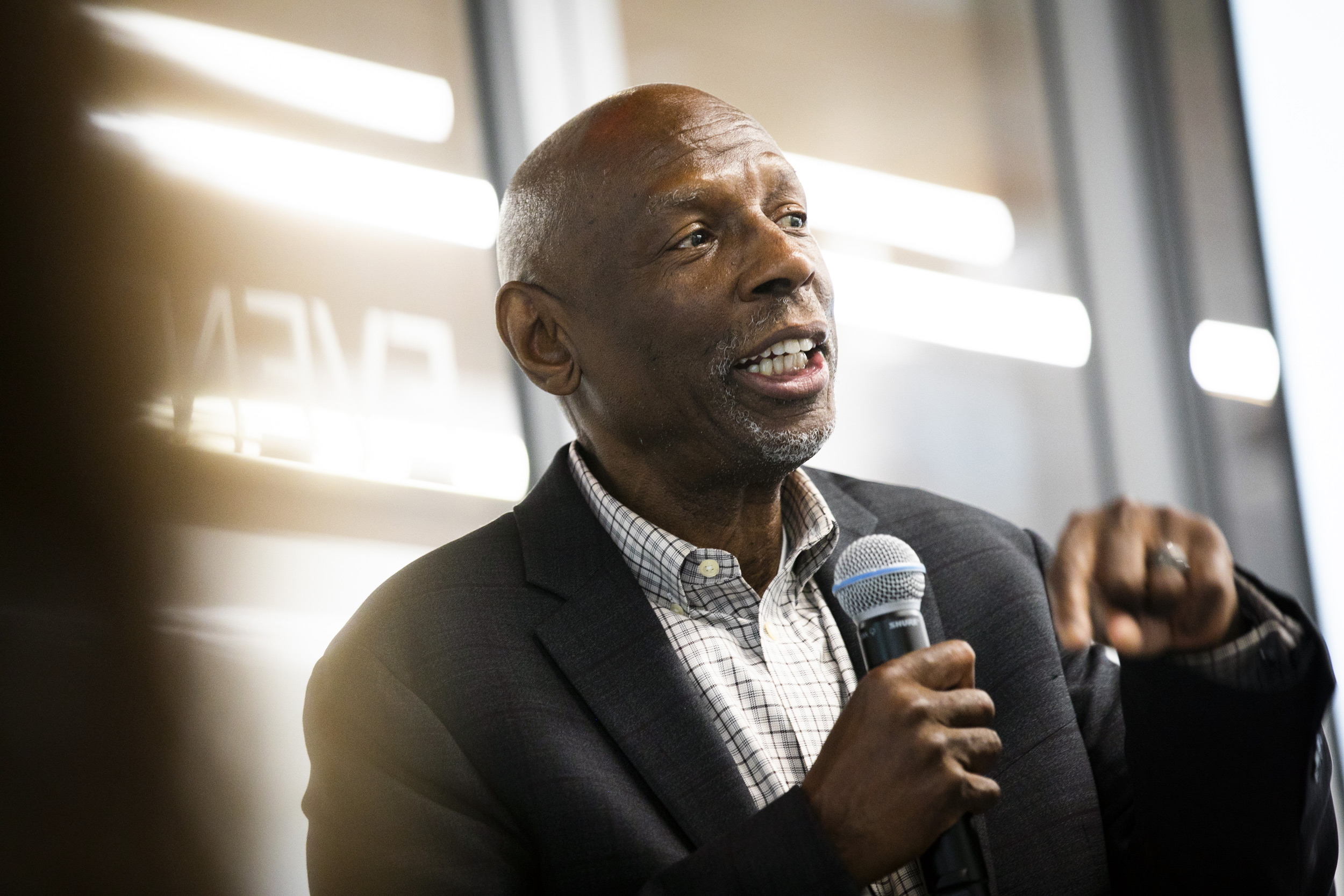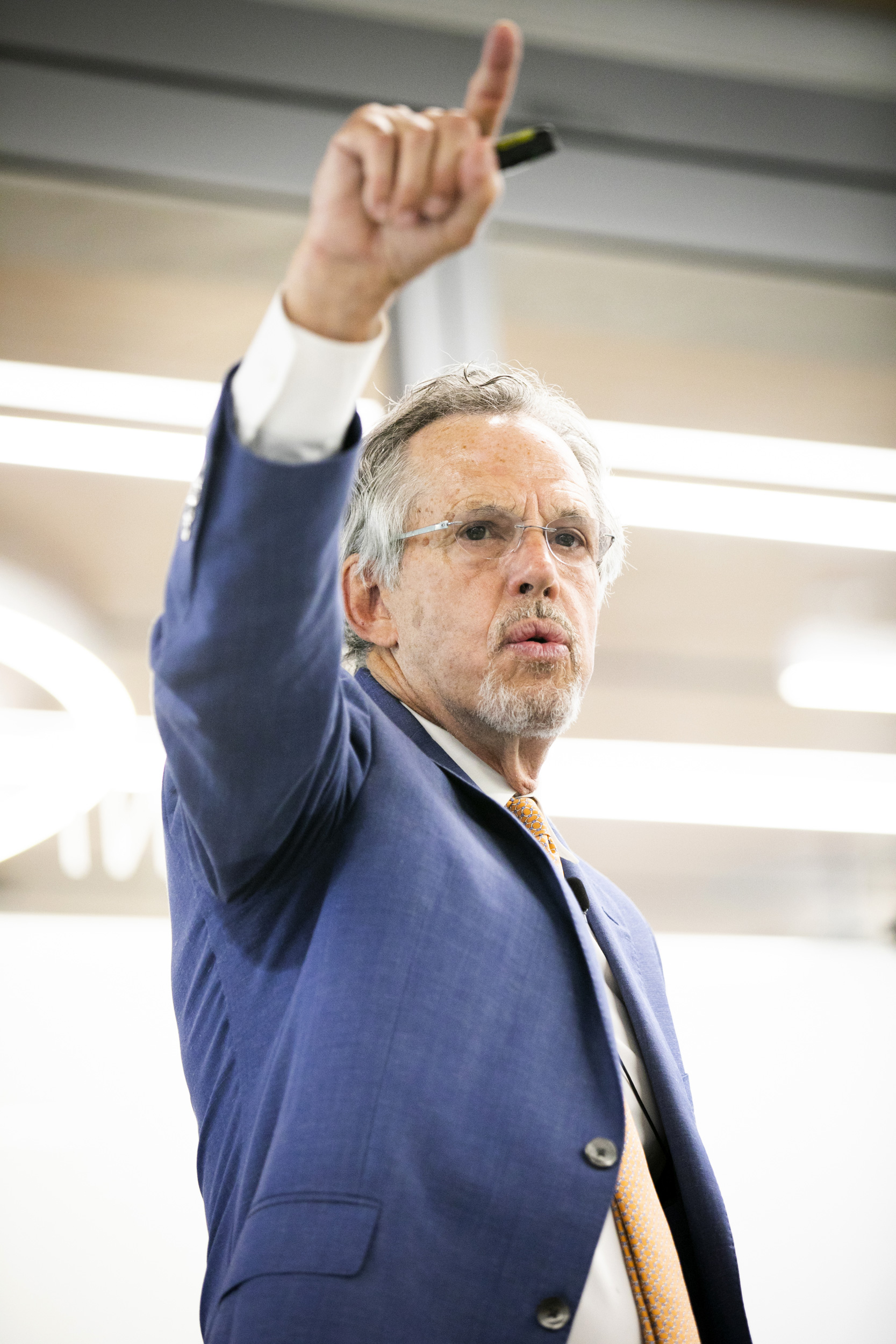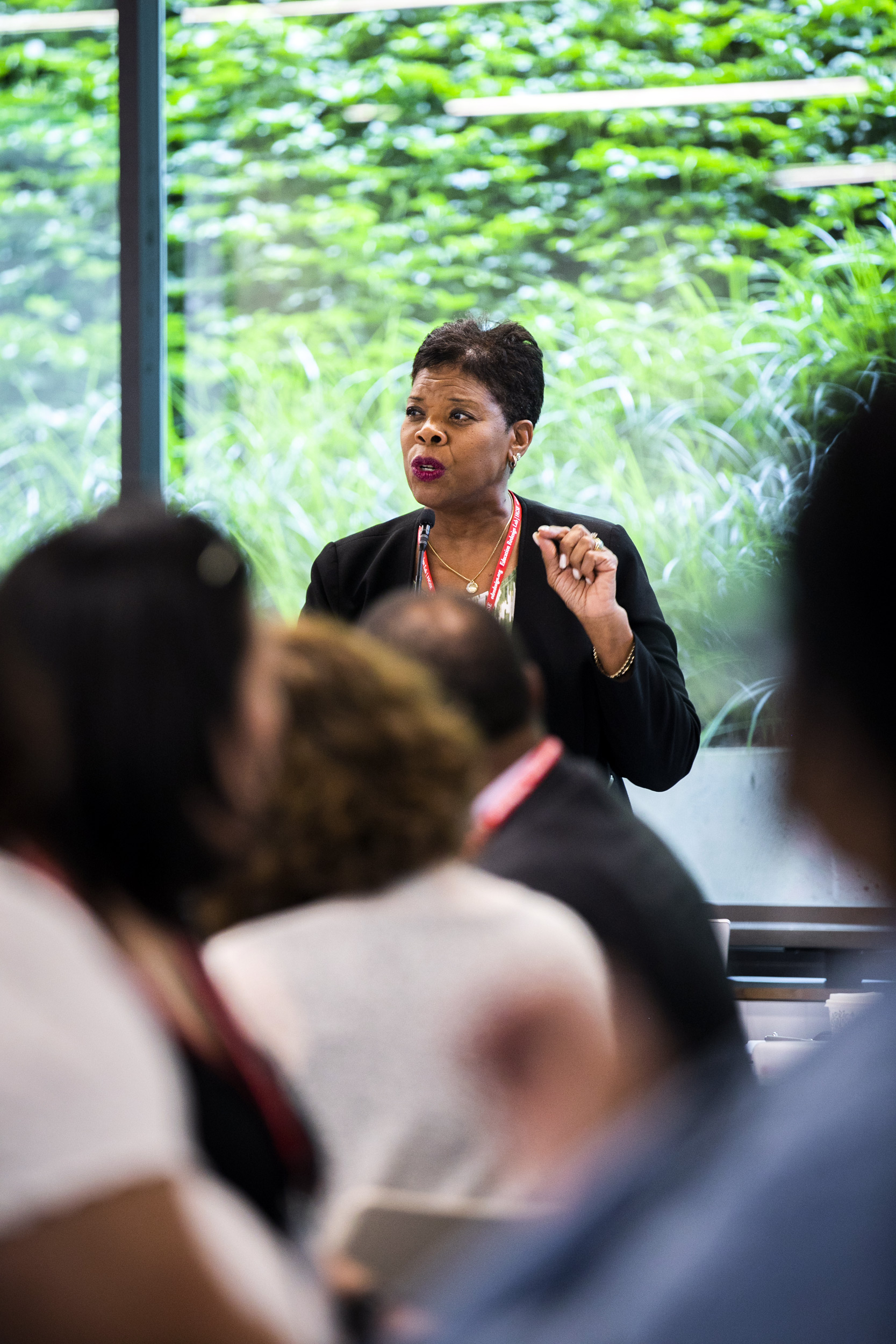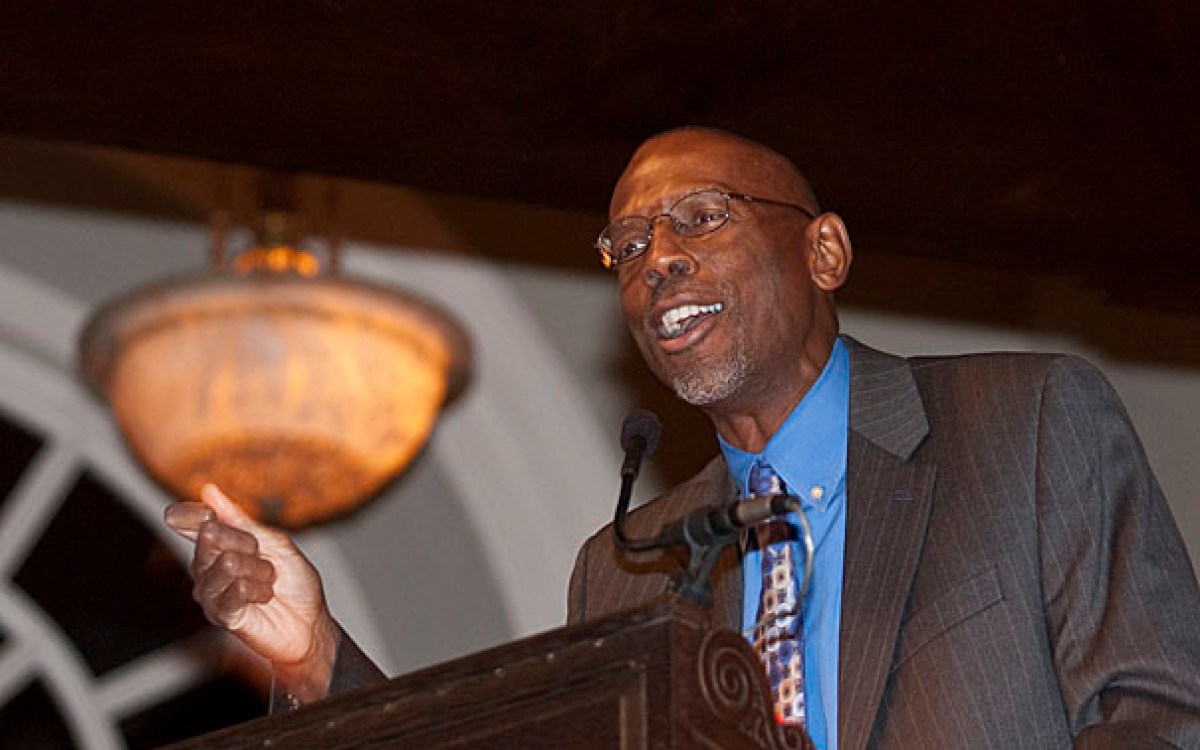
“We aren’t waiting to get the perfect strategy together, because you’re here because you represent communities that don’t have the luxury of waiting another year,” said Geoffrey Canada in his opening remarks at the weeklong “Summer Institute: Transforming Place through Neighborhood Leadership.”
Photos by Stephanie Mitchell/Harvard Staff Photographer
Neighborhoods as engines for social, economic mobility
Ed School, Harlem Children’s Zone work with nonprofits on business plans to help level playing field, foster student success
When educational achievement lags, reformers often ask why schools are failing and look to institutional solutions like testing, teacher preparation, and curriculum reforms.
But striving to ensure quality education for all in the classroom is just part of the answer, education and community development experts said Monday. The rest lies outside of schools, where children spend most of their time and where the divide between the nation’s haves and have-nots is stark — from access to basic needs like housing, food, and health care to enriching activities after school and during vacations.
“We as a society have thrown up our hands, shrugged our shoulders at this and said ‘That’s just the way it is’ rather than make it an entitlement,” said Paul Reville, the Francis Keppel Professor of Practice of Educational Policy and Administration at the Harvard Graduate School of Education. “We know it matters. If you get it, you surge forward; if you don’t, you fall back.”
That’s why Reville, founding director of HGSE’s EdRedesign Lab, and Geoffrey Canada, a GSE alum and president of Harlem Children’s Zone, are teaming up this week to inspire and support nonprofit community groups looking to level the playing field. The event, “Summer Institute: Transforming Place through Neighborhood Leadership,” is sponsored by the EdRedesign Lab at HGSE and the William Julius Wilson Institute at Harlem Children’s Zone.
Canada, who earned a master’s degree from Harvard in 1975, is nationally known for the model of “wrap-around” services that Harlem Children’s Zone designed to augment the work of schools in fostering child development. The organization, which Canada founded, works with neighborhood groups to ensure basic educational services, along with pre-kindergarten, after-school services, health care, violence-prevention programs, college admissions support, and other aid for parents and families.


Paul Reville, founding director of EdRedesign Lab, said one of the Summer Institute’s goals is to inspire and support nonprofit community groups, something Vanessa Ward, president of Omega Community Development Corporation, is looking for. “This helps us think about our work, building the organization through a business plan,” she said.
Canada said the Wilson Institute would place an emphasis during the week on creating business plans, which will help put ideas into action sooner, even if they have to be tweaked later. He cautioned against waiting for the perfect plan before implementing action, saying programs launched this year will reach at least some kids and perhaps make a difference in their lives.
“We think by coming together now we’re going to save some children this year who would not have otherwise been saved,” Canada said. “For those children, it will change their life forever, and next year we’ll do better.”
Canada and Reville, former secretary of education for the Commonwealth of Massachusetts, addressed a roomful of representatives of community groups from around the country at the HGSE’s Gutman Conference Center. The workshop aims to bolster participants’ efforts through education, inspiration, data analysis, business planning, and group-focused coaching. Sessions include talks about organizational finance, federal grants, managing partnerships, and other topics.
Vanessa Ward, president of Omega Community Development Corporation in Dayton, Ohio, said she and the organization’s team have always acted out of a sense of mission. And they’ve had some success — the organization recently opened an 81-unit senior housing building and a Hope Center for Families to provide child health, early childhood education, and career training. But now their focus is to make their efforts more intentional and sustainable and leverage training from the Summer Institute to spark more outside-the-box thinking.
“Our attempt is to break the cycle of poverty by increasing the opportunities to succeed and, for their [the children’s] families, simultaneously, to do better, to earn a better living. We’re seeing some success,” Ward said. “This helps us think about our work, building the organization through a business plan. Usually we’ve been heart- and emotion-filled, we’ve acted out of mission and not so much out of a real sense of ‘How are we going to sustain this forever?’”






